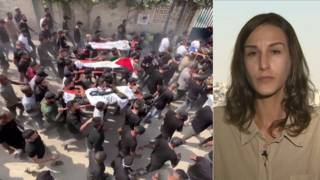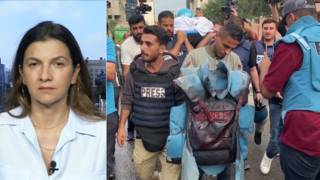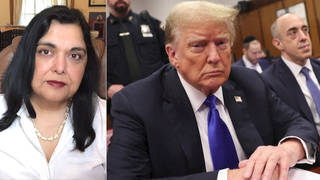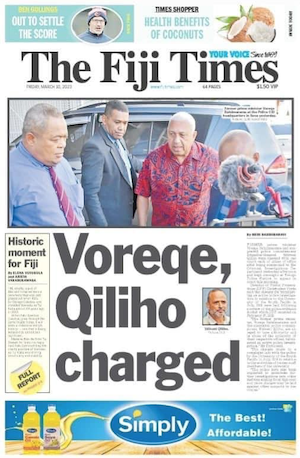Attacks on journalists in the US increase by more than 50% from 2023 to 2024
New York, October 1, 2024 — The safety of journalists in the United States is no longer a given as members of the media face a slew of threats – including violence, online harassment, legal challenges, and attacks by police – that could coalesce to undermine press freedom, according to a new report published Tuesday by the Committee to Protect Journalists (CPJ).
The report, “On Edge: What the US election could mean for journalists and global press freedom,” found that the hostile media climate fostered during Donald Trump’s presidency has left a legacy that poses great risks to media inside and outside the country.
“It is concerning that in an increasingly polarized environment, threats to the media have become routine in the U.S.,” said Katherine Jacobsen, CPJ’s U.S., Canada, and Caribbean program coordinator and author of the report. “The scapegoating of journalists not only has consequences for them personally, but also poses grave risks to the public’s right to be informed, a core element of any democracy.”
As of September 2024, assaults on journalists in the U.S. in relation to their reporting have increased by more than 50% compared to 2023 — from 45 to 68 assaults — according to data from the U.S. Press Freedom Tracker, of which CPJ is a founding member.
Journalists are also still struggling with the aftermath of the January 6 attack on the U.S. Capitol in 2021 and the Black Lives Matter protests that erupted across the country in the wake of George Floyd’s murder in Minneapolis on May 25, 2020. No charges have been brought in at least 15 of the 18 cases of journalists assaulted at the Capitol and reporters interviewed by CPJ say that there has been little accountability for the 273 police assaults on journalists covering the Black Lives Matter protests.
Media outlets are also facing an onslaught of lawsuits that deplete their resources and could endanger reporters’ First Amendment rights and ability to protect confidential sources. The report notes that threats to sources underscore the need to codify legal protections, such as the PRESS Act, to ensure that journalists can report without fear of surveillance from authorities, or forced disclosure of their sources in court. The bipartisan legislation, which CPJ helped author, passed the House of Representatives but has languished in the Senate.
This has been compounded by a disturbing rise in online harassment, especially against women, journalists of color, LGBTQ+ reporters, and journalists who belong to religious or ethnic minorities.
These risks can be aggravated because local journalists often lack the safety training and resources found in large national media outlets, rendering them more vulnerable to retaliation at the hands of those disgruntled with their reporting.
CPJ’s report also found that international journalists were concerned that the outcome of the November 5 election could have long-lasting implications for press freedom around the world. A press-unfriendly administration, for example, could cut U.S. government funding for media outlets reaching vast global audiences and embolden authoritarian leaders to crack down on journalists in their own countries.
To mitigate risk and help journalists protect their rights in what has become an increasingly tenuous situation, CPJ has invested in safety training and outreach to newsrooms. This year, CPJ has trained 741 journalists in the US and offered 18 training sessions covering preparedness against physical, digital and legal threats.
Despite the worrisome state of press freedom manifesting in small towns and large cities across the country, more than 70% of U.S. adults say freedom of the press is extremely or very important to the well-being of society, according to a Pew Research poll.
In September, CPJ wrote to both presidential candidates, Donald Trump and Kamala Harris, requesting that they publicly affirm the rights guaranteed by the First Amendment and abide by basic principles to respect and promote media freedom at home and abroad. Neither candidate had signed the pledge.
About the Committee to Protect Journalists
The Committee to Protect Journalists is an independent, nonprofit organization that promotes press freedom worldwide. We defend the right of journalists to report the news safely and without fear of reprisal.
Media Contact: press@cpj.org
This content originally appeared on Committee to Protect Journalists and was authored by Committee to Protect Journalists.
This post was originally published on Radio Free.



